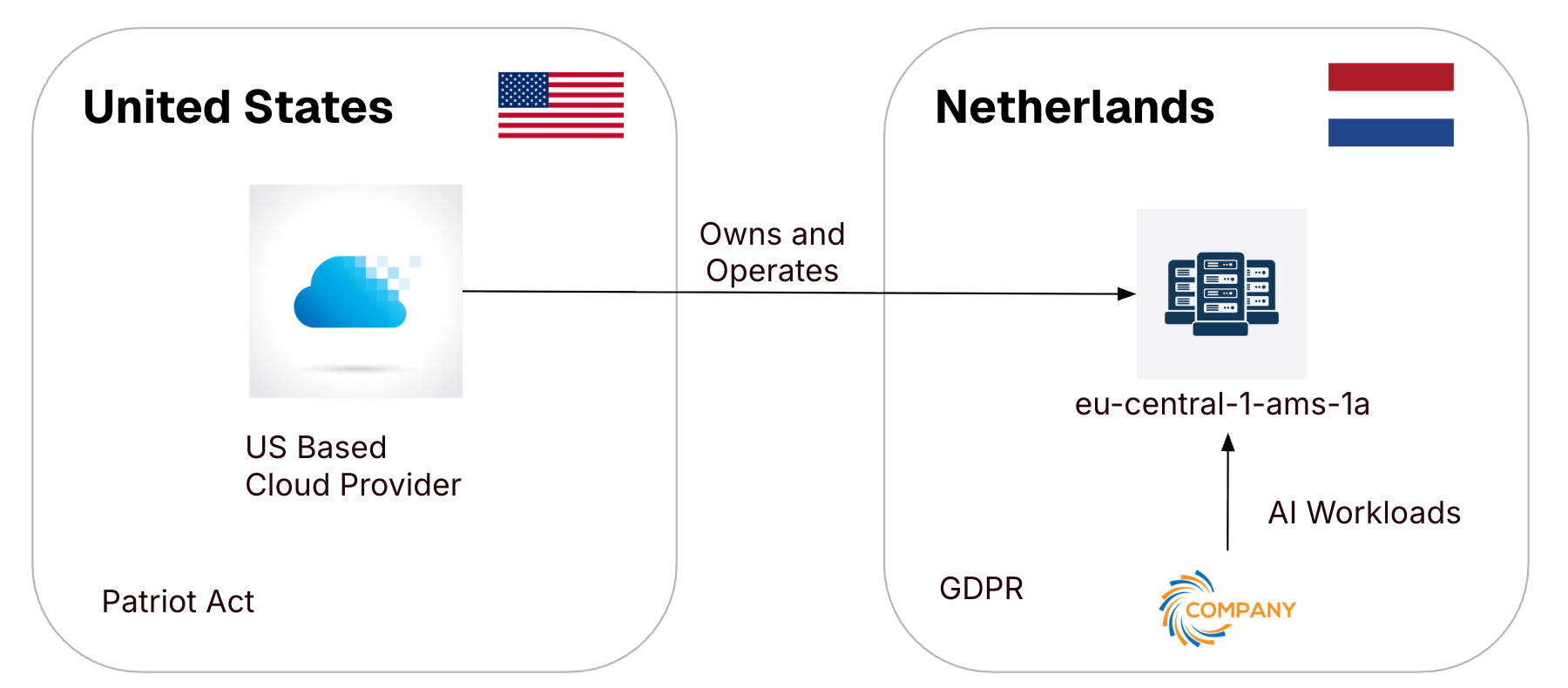Private Sovereign Clouds with Solvinity and MinIO

What is a Sovereign Cloud?
Look up the definition of “sovereignty” in any dictionary, and you will get a definition along the lines of “supreme power or authority.” So, a logical definition of “Sovereign Cloud” would be a cloud where a single governing entity like the European Union or the government of a single country can create acts and policies that control the physical layer (data centers and infrastructure), the code layer (quality standards, source code management, and design), and the data layer (ownership, flows and use) of a given cloud. This is, in fact, the correct definition.
A common misconception is that a sovereign cloud is a cloud where all assets (physical, code, and data) are located within the boundary of some governing entity. While this is an important requirement of a Sovereign cloud, it is not the only requirement. One more key criterion for a cloud to be truly sovereign is that it must fall under the authority of only one government. To understand why this is necessary, consider the graphic below.

Governments make regulations independently of other governments. Additionally, most governments create rules that primarily benefit their own interests. These rules apply to all organizations headquartered within the government’s country and they also apply everywhere these organizations do business. So, a US cloud provider operating a data center in the Netherlands is governed by US law. Consequently, what would happen if the US created an act regarding data controls that clashed with another government's protections for personally identifiable information? Unfortunately, this is precisely the situation in Europe today.
Related: What is Sovereign Cloud? Characteristics & Key Drivers
Solvinity’s Private Sovereign Cloud
Solvinity is a secure managed cloud provider in the Netherlands. They design, build, and run private, public, and hybrid cloud solutions with a strong focus on security and compliance. The current geopolitical situation has driven particular interest from affected customers in their Managed Kubernetes and S3 Object Storage services as they greatly improve application and data portability, enabling organizations to maintain flexibility and avoid vendor lock-in during uncertain times. Today, they have a large footprint in the Dutch public sector - for example, government agencies such as the Ministry of Justice and Security, the Dutch police, various municipalities, and public transport organizations like Translink Systems. These are organizations that operate in sectors where security and compliance are critical.
Customers can rely on the latest best practices in the market, implemented with the highest security and compliance standards. Solvinity manages the environment, providing complete control that guarantees end-to-end security. At the same time, the Solvinity Cloud gives customers full control over the resources their applications consume, allowing for scale-up and scale-down. There is also an integrated delivery service which focuses on empowering customers with autonomous deployment capabilities, enabling them to deploy changes as frequently as their business requires while maintaining a streamlined, frictionless process..
The Solvinity cloud is hosted on Solvinity infrastructure within a network of data centres in and around Amsterdam. However, it is not a public cloud; you cannot swipe a credit card and start using their services. Rather, Solvinity operates private clouds, serving a specific organization or group of organizations that share common requirements for secure and compliant cloud environments. For this reason, the Solvinity cloud is a private cloud. Additionally, since Solvinity uses data centers that are all located within the Netherlands and Solvinity itself is a Dutch company, its cloud is also a sovereign cloud for the European Union and the Netherlands.
Solvinity and MinIO
Solvinity’s object storage journey began about five years ago, when they were building a private cloud for a customer who additionally requested an S3-compatible object storage solution. Their platform was already largely complete, so they needed a solution that would easily integrate into the existing platform without requiring a complete overhaul.
Unsure what the demand would look like, Solvinity needed a solution that could scale efficiently as usage and demand grew. There were other requirements beyond S3 compatibility and scalability. To help their customers comply with various regulations, they needed replication (to meet the strict recovery point objectives), server-side encryption, versioning, and lifecycle management. Additionally, the storage solution had to integrate seamlessly into a multi-tenant environment. Finally, they needed something that wouldn't require a dedicated team to keep it running.
We needed something that would not require a dedicated team to keep it running. MinIO AIStor was the perfect solution for us.
- Tijmen van den Brink, Lead Solutions Architect from Solvinity
Requirements of a Private Sovereign Cloud
All the requirements above lead Solvinity to MinIO’s AIStor. For them, AIStor was the only logical choice. AIStor is a software-defined S3-compatible enterprise-grade object store specifically designed to handle AI and large-scale data workloads at exabyte scale. Since it is software-defined, it efficiently runs on a variety of hardware platforms, including Kubernetes, making it the perfect choice for a cloud provider building a multi-tenant, scalable object store for its customers. Out of the box, AIStor provides versioning, replication, server-side encryption, and lifecycle management.
The Road Ahead
In the beginning, Solvinity customers leveraged object storage mainly for simple use cases like storing documents handled by their applications. In the past five years, S3 has transformed into a core architectural component. This shift is set to intensify as enterprises construct Data Lakehouses and develop their generative AI capabilities.
"Over the past five years, we've observed S3 evolving from a simple storage solution to a fundamental component of application architectures. Its adoption continues to accelerate."
- Tijmen van den Brink, Lead Solutions Architect from Solvinity
If you would like to hear the podcast version of this case study, then check out:






